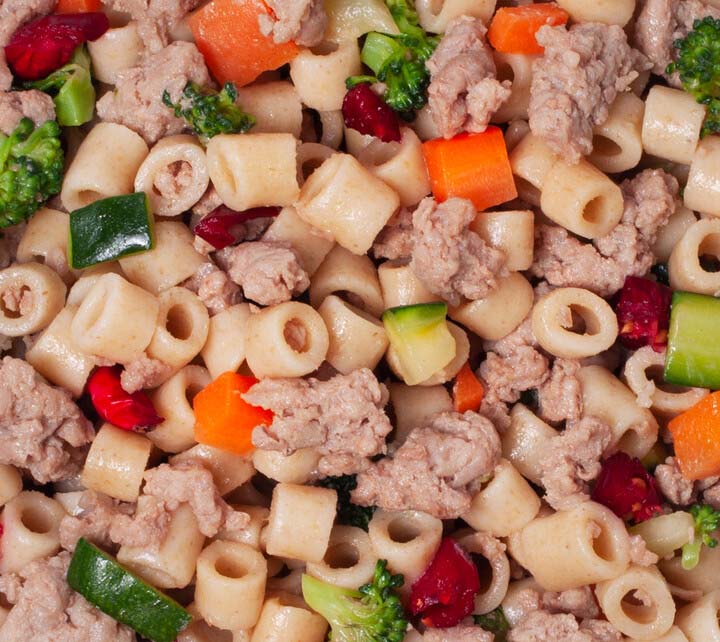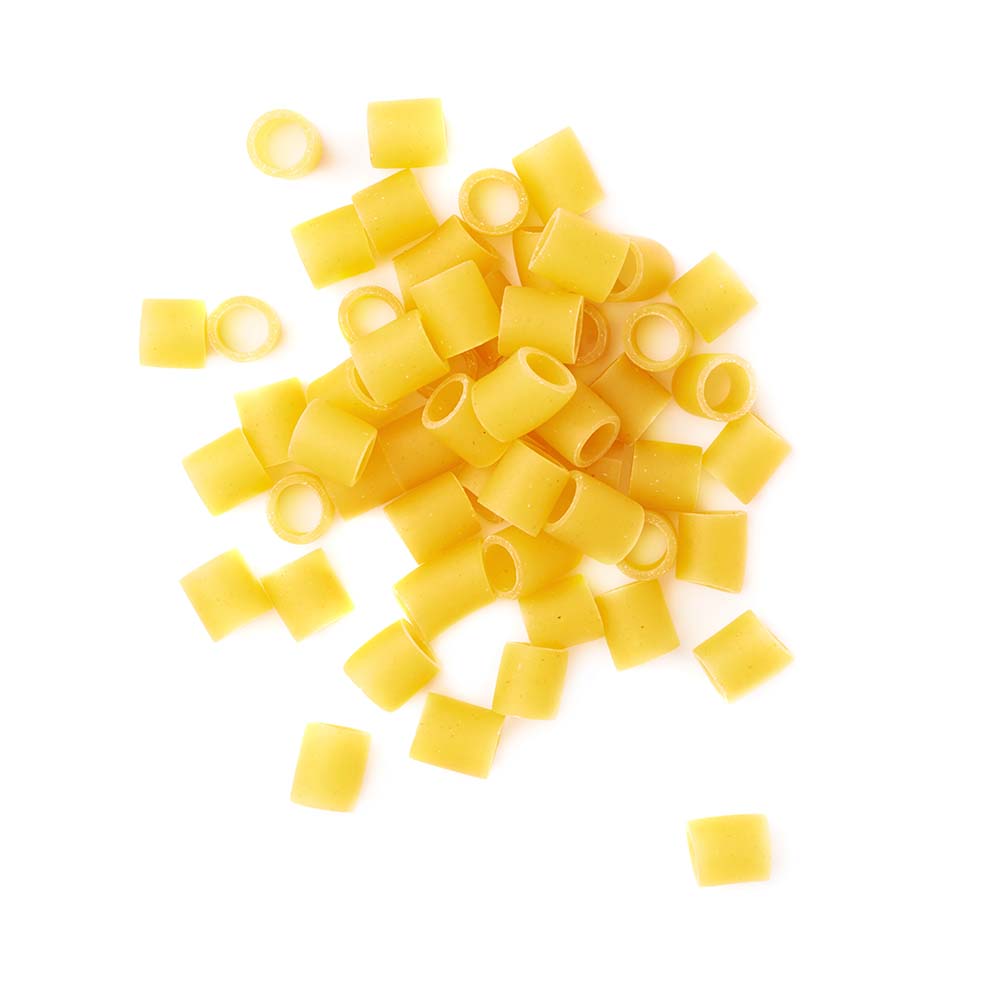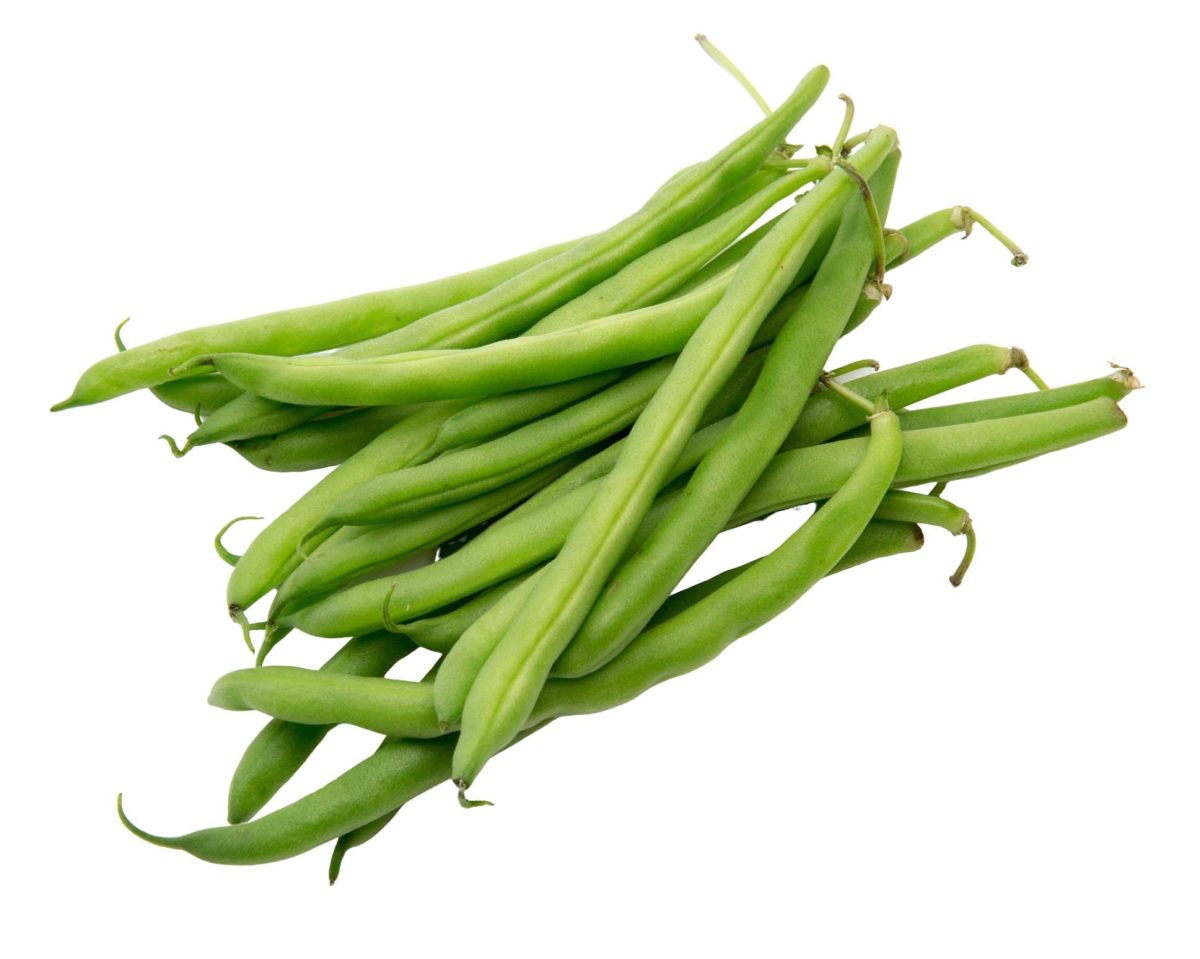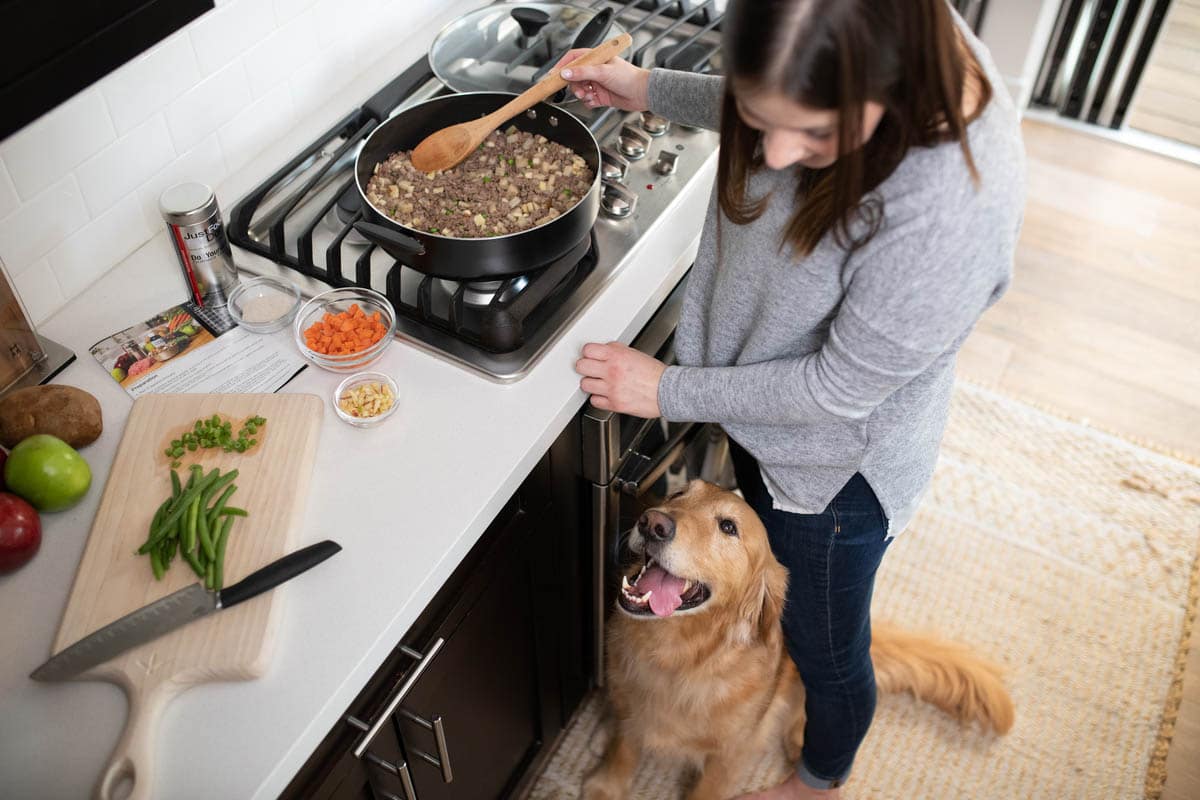Can Dogs Eat Pasta Noodles?
Pasta is a staple carb in many human diets, but can dogs eat pasta noodles too?
Pasta is a staple carb in many human diets, but can dogs eat pasta noodles too? The answer is yes, but there are a few things to keep in mind before you and your furry friend reenact that spaghetti scene from Lady and the Tramp.
Can my dog eat pasta? Is pasta safe for dogs?
Plain pasta is generally safe for dogs to eat. However, some types of pasta are made with human foods that can be toxic to dogs, such as garlic, onions, and chives. It is also important to avoid feeding your dog pasta dishes with any tomato sauce or Italian seasonings that contain these ingredients.
You may also be tempted to share a classic comfort food: macaroni and cheese. Avoid giving this to your dog if they have lactose intolerance and cannot eat dairy products without gastrointestinal issues.
Is pasta good for dogs?
Pasta is not a nutritionally complete food for dogs, so it should never be their main source of food. However, you can give it as an occasional dog treat in small amounts.
Pasta is high in carbohydrates and calories, so a large amount of pasta can lead to weight gain, obesity, and other health problems in dogs. Dog owners should keep their dog’s digestive system in mind in order to avoid giving them an upset stomach.
Whole wheat pasta, which is made from whole grains, is a good bland grain like white rice that comes with many health benefits. It is a very nutrient-dense carbohydrate source with high levels of dietary fiber and B vitamins such as folate and thiamine. These all help support digestion and provide more energy for metabolism.
How to serve pasta to your dog

If you do decide to give your dog pasta, there are a few things you can do to make sure it is served safely:
- Only use cooked pasta. Raw or uncooked pasta can wreak havoc on your dog’s stomach.
- Cook the pasta without any salt or pasta sauce.
- Avoid adding any garlic, onions, chives, or other toxic ingredients to the pasta. This could give your dog severe health issues like anemia by damaging their red blood cells.
- Serve the pasta in small quantities as an occasional treat, not as a regular part of your dog’s diet.
Plain noodles have no nutritional value on their own, however, your pooch can reap the benefits of whole wheat pasta and a balanced diet with fresh dog food.
Our Turkey & Whole Wheat Macaroni recipe includes other healthy and simple ingredients like broccoli, zucchini, carrots, turkey liver, and cranberries. Plus, it’s created by veterinarians, so pet owners can trust it’s nutritionally balanced for their dog’s health.
It’s an easy recipe to DIY as well. If you have our DIY Nutrient Blend, follow these simple instructions for making a homemade ground turkey dog food recipe.
Other things to keep in mind
If your dog has any underlying health conditions, such as heart disease, diabetes, or allergies, it is important to talk to your veterinarian before feeding pasta or any new human food. If uncooked, pasta can also be a choking hazard for dogs, so it is important to supervise them while they are eating it.
Be mindful of any allergies or food sensitivities your dog may have. Though uncommon, some dogs could have a gluten, lactose, or wheat allergy. If you notice any signs of an allergic reaction, such as vomiting, diarrhea, or skin irritation, stop feeding your dog pasta and consult with your veterinarian.
While your best friend can eat pasta in small portions, it is important to do so safely and responsibly. Avoid feeding your dog pasta in large quantities or with any spaghetti sauce or toppings that contain toxic ingredients, and only serve it as an occasional treat or in a complete and balanced dog food recipe. If you have any concerns, talk to your veterinarian.
For a comprehensive list of people food that is safe for dogs, check out this blog post.
This content is for informational use only and does not replace professional nutrition and/or medical advice, diagnosis, or treatment. It is not a substitute for and should not be relied upon for specific nutrition and/or medical recommendations. Please talk with your veterinarian about any questions or concerns.








